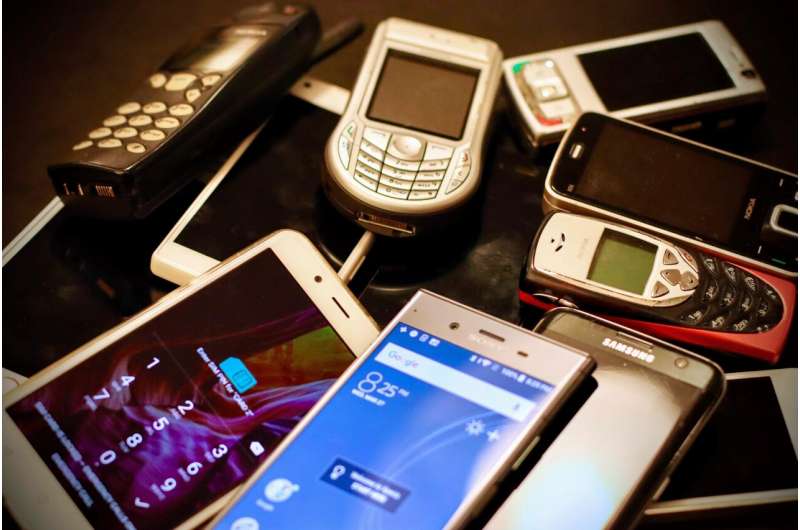This article has been reviewed according to Science X's editorial process and policies. Editors have highlighted the following attributes while ensuring the content's credibility:
fact-checked
trusted source
proofread
Cellphone bans in schools alone won't curb distraction, says communication technologies expert

Cellphone bans in middle and high schools across the U.S. are raising questions about how effective locking away students' devices on the heels of a pandemic—when classroom instruction was all but virtual—will be.
The no-phones policies have swept across school districts in waves after educators noticed that students were "glued to their devices" upon returning to the classroom following the easing of COVID-19 pandemic restrictions.
Administrators have taken action in many states. In central Florida, for example, a school board moved to prohibit cellphones throughout the day—even during lunch periods. In a school district in Alabama, students must now lock away their phones in magnetically sealed pouches prior to the start of the school day.
As classroom teaching in this century has incorporated many new technological tools—especially after the pandemic essentialized them—these policies might seem draconian. But with research linking cellphone and tablet use in the classroom to poorer test scores, are the bans necessary to reduce distraction?
"While cellphone bans are not new, nor are companies like this offering 'lockdown' services, what is new is students who have had a few years of remote learning during COVID," says Meryl Alper, an associate professor of communication studies at Northeastern University, who studies children and families' technology use. "During [virtual] class[es], they've had unfettered access to their devices. For some students, not only have they developed habits that could be maladaptive during the school day, but it may have impacted their learning too for years to come."
Alper suggests that bans by themselves won't necessarily lead to more engaged learning unless accompanied by measures to educate students on their technology use. It's precisely the unfettered nature of online distraction—the tech user's propensity for misusing the devices—that has led to the popularization of "digital citizenship" and social media literacy as concepts that should be integrated in schools.
"While cellphone bans are functionally useful, they are not effective for behavior change unless coupled with digital citizenship programs that offer students reflections on their personal choices with technology," she says.
"Even then, what students are doing with personal devices in the classroom are affected by their use outside of it, as well as how they see smartphone use being modeled by caregivers at home," Alper adds.
It's not immediately clear how many of the districts that have proposed bans also provide courses or training on technology use—they are too numerous to count. But Alper also points out that blanket bans run the risk of depriving students of tools that may be necessary to their learning.
"Accessibility is an issue not generally considered during such bans," Alper says. "Some students appreciate being able to use personal devices with cameras to capture notes, particularly if teachers do not make their visual materials available to students in other ways. I for one always upload my slides to Canvas after class for these reasons."
The wave of classroom cellphone bans only further highlights just how divided educators are on the subject. A recent study by the Global Education Monitoring Report concluded that evidence is "mixed" on the impact of technology on education worldwide. The report also notes that "technology is evolving too fast to permit evaluations that could inform decisions on legislation, policy and regulation."
The "extent to which technology has transformed education needs to be debated," the report states. "Change resulting from the use of technology is incremental, uneven and bigger in some contexts over others. The application of digital technology varies by community and socioeconomic level, by teacher willingness and preparedness, by education level, and by country income."
In the U.S., Alper suggests that the conversation about cellphone bans might distract from more pressing issues facing the well-being of students.
"It's hard to think about the bans of cellphones, and panic over their use in schools, and not think about which U.S. states are more or less likely to ban more probable threats—namely, assault weapons—on school campuses and in the community that significantly impact the overall well-being of children," she says.
Provided by Northeastern University




















